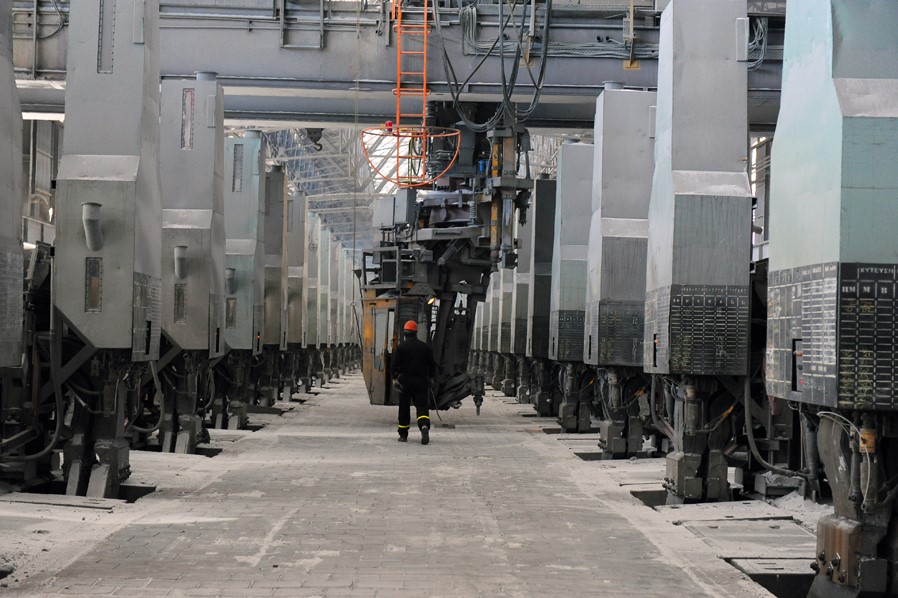

The European Commission's decision to turn down the Greek government's proposal to consolidate the electricity demands of major industrial consumers, such as those in the aluminium and chemical sectors, to reduce their operational expenses has disappointed the metal industry.

In July 2022, the Greek government introduced the Green Pool scheme in response to the skyrocketing electricity costs following the Ukraine-Russia geopolitical crisis.
This initiative aimed to reduce electricity expenses and primarily catered to significant industrial electricity consumers, such as those in the aluminium, steel, glass, and cement industries.
The program encouraged these industrial players to collaborate and engage in corporate power purchasing agreements (PPAs) for renewable energy. A public entity oversaw the process, acting as the intermediary responsible for buying and selling renewable electricity on behalf of the participating companies.
The objective of the initiative was to alleviate the expenses associated with adapting industrial production to align with the intermittent output of renewable energy sources like wind and solar power installations, commonly known as firming or shaping costs.
The European Commission had pinpointed these costs as a significant barrier hindering industrial electricity consumers from engaging in Renewable Energy Power Purchase Agreements (PPAs), which are currently being advocated as part of the proposed reform of the electricity market in Brussels.
However, as the Greek aluminium and energy company Mytilineos reported, the European Commission's competition directorate rejected the scheme on, October 6th.
According to the Greek company, the primary argument presented by the Commission revolves around the assertion that renewable Power Purchase Agreements (PPAs) should not be considered as "decarbonisation" activities for electro-intensive industries because they do not fall within the category of so-called scope 1 emissions, which refers to emissions that producers bear direct responsibility for.
According to the company's statement, the underlying rationale conveyed to the Greek authorities is that the Commission aims to prevent energy-intensive industries from benefiting from subsidised electricity prices.
The World Bank has classified aluminium as a "high-impact" and "cross-cutting" metal in green energy technologies, encompassing applications ranging from electric vehicles to solar photovoltaics and geothermal energy.
However, in Europe, the aluminium industry has experienced a gradual decline over the years, with production decreasing from over 4.5 million tonnes 15 years ago to the current figure of 2.7 million tonnes.
The decisive EU voice of non-ferrous metals producers and recyclers, Eurometaux, expressed disappointment in response to the industry's reaction.
Guy Thiran, the Director General of Eurometaux, said, "We're surprised and disappointed that the European Commission rejected Greece's 'Green Pool' proposal."
The Greek plan fully satisfied all the requirements regarding decarbonisation, competitiveness, and the deployment of renewables. It served as an essential model that could facilitate the broader decarbonisation of the metal and power sectors in other European Union member states. He believed the plan would have played a crucial role in maintaining aluminium production within the European Union's boundaries, especially as the EU classified bauxite, alumina, and aluminium as critical raw materials during that period.
Thiran said, "Electricity-intensive metals producers are still on their knees from the energy crisis" caused by the war in Ukraine. If Europe is serious about keeping its strategic metals production 'Made in Europe', we urgently need real solutions like the Green Pool."
The Director General of European Aluminium, Paul Voss, was equally upset.
The Director General said, "We are deeply troubled and genuinely shocked by the rejection of this innovative initiative. Not only does this decision dangerously undermine the case for investment in solar and wind in Greece, it sends a clear message that energy-intensive industry, even when renewables power it, isn't wanted in Europe anymore."
Mytilineos proposed that the Green Pool initiative could have spurred the creation of 4 gigawatts of fresh wind and solar energy investments in Greece. Simultaneously, it would have ensured cost-effective electricity rates for energy-intensive industries. This program could easily be replicated in other countries, which garnered support from various EU trade associations such as BusinessEurope and WindEurope. The aluminium industry's exasperation is compounded by recent EU discussions on achieving "strategic autonomy" in the raw materials and energy sector.
Responses








